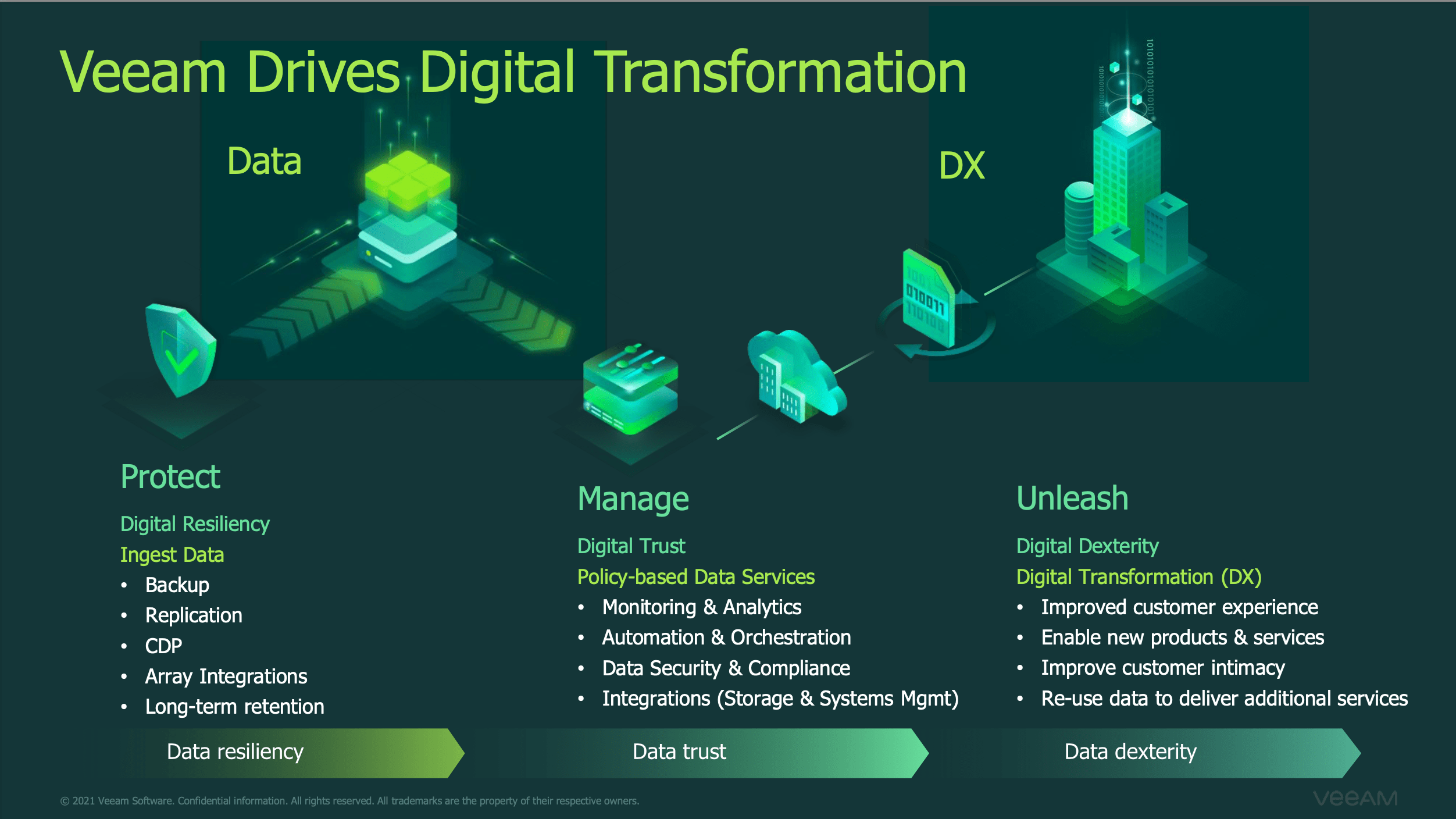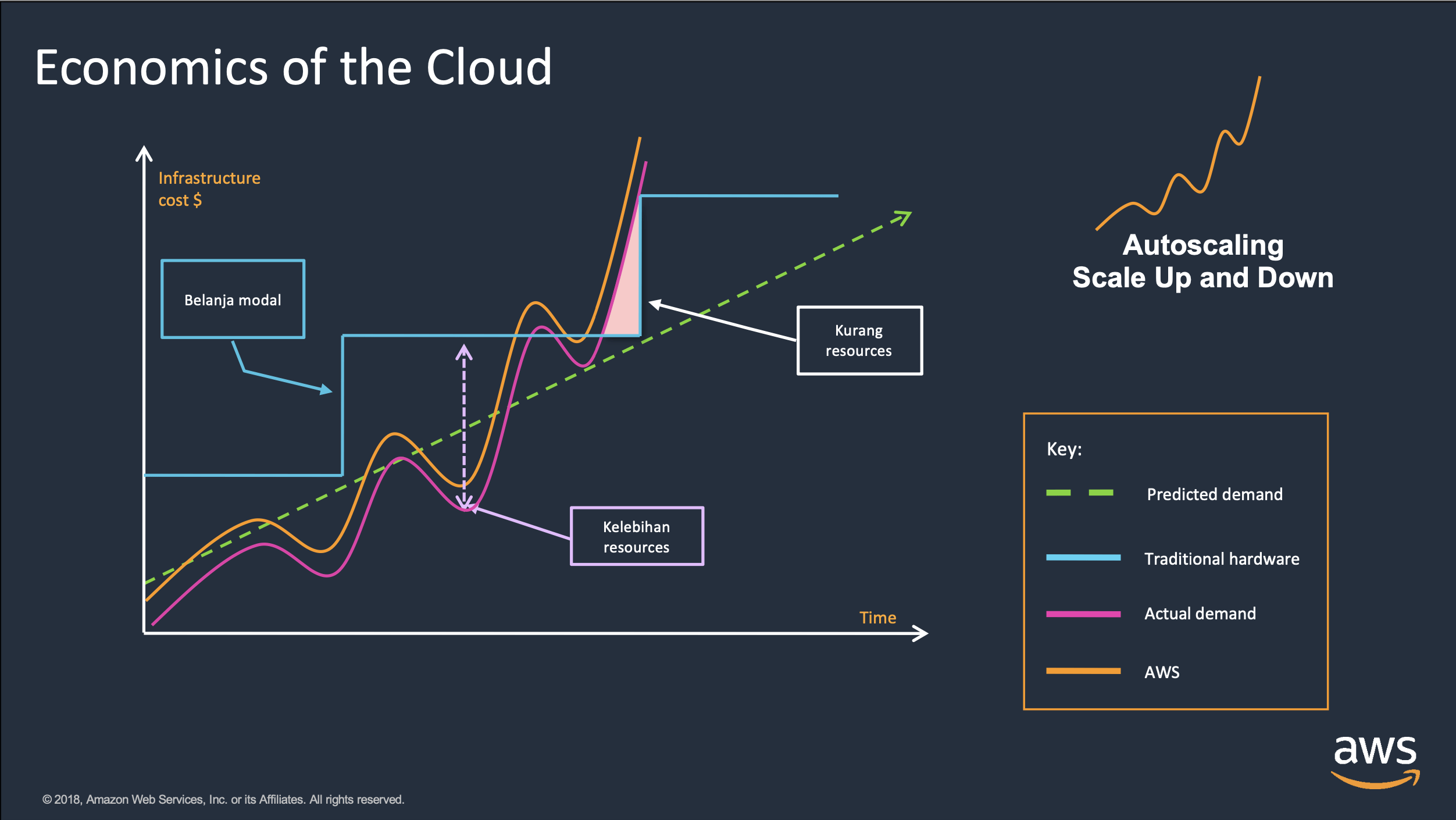
President Joko Widodo has officially announced that the capital will be relocated to East Kalimantan and will be inaugurated in 2024, “Indonesia’s new capital is part of the massive transformation in the country!”
Ministries and government agencies will be relocated to the new capital from 2024 to 2045. For a country to become digitally enabled, it will require a massive data migration strategy in which government services are fully integrated, transparent, and secure. A regulatory framework for national digital transformation, encompassing four major domains: internal policy, governance, management, and service, must be established.
What steps need to be taken to ensure a secure effective cloud migration?
The Indonesian government’s “One Data” policy and the digital government environment are expected to have a significant impact on the design of big data architecture and infrastructure. In Indonesia, digital governance policies emphasise establishing stewardship, accountability, roles and decision-making authority for the city’s digital presence.
To avoid misalignment during the implementation of the digital strategy, the Indonesian government intends to establish a well-designed digital governance framework that will fully govern data protection and security.
Policymakers concerned with establishing security and data protection policies that balance the need to protect data with the need to enable secure data flows will always face challenges. To make this work, some governments have imposed stringent regulations, while others have developed a wide range of technical and security policies that overlap with existing international standards, resulting in a complex web of conflicting policies.
However, from a technological standpoint, we will explore the best solutions that will complement Indonesia’s “One Data” policy and practice.
Several trends emerge in the new shift towards the “One Data” policy. The first of which is the transition to “Datafication”. This practical concept has proven to be effective and is expected to deliver as all ministries prepare to migrate data and workflow in preparation to move to the new capital city. It is critical to plan the migration strategically to ensure that data is fully backed up and automated.
Another aspect to consider is expanding on the backup data classification. To guarantee data is always recoverable and available in the event of outages, attacks, loss or cyber threats, ministries must protect all workloads with backups, supplemented with snapshots and replication where appropriate.
This function enhances data governance practices, thereby increasing citizen and investor trust. Further, being prepared by implementing data classification and infrastructure resources can help in combating cyberthreat or data loss has effectively reduced the risk of a data breach.
The Virtual Public Sector Day held on 23 March 2022 is aimed at providing insights and practical solutions that enable the Indonesian public sector to maximise its data capability through comprehensive, centralised data protection, a cost-effective and secure data-driven process during the migration of data to the new capital.
The urgency of cloud modernisation

Kicking off the session, Mohit acknowledges that the pandemic brought significant changes in culture and perspective. In the new normal where remote working has been established, “data has to be readily available,” Mohit opines.
Yet, merely having data is not enough, “Data is oil only when it is used.” Everyone is in the process of realigning the data strategy, configuring their data policy on where data should be kept and how they should be used.
For Mohit, in the future that the world is heading towards, data needs to be accessible, backed up and secured. “You will get hit, it is going to happen,” Mohit claims. “The question is, what is your recovery strategy and how are you managing your data?”
Mohit observes that many governments have rapidly pivoted to build their applications on cloud – due to the elasticity and security that cloud offers. However, he agrees that some data will continue to reside on-prem, which is why hybrid models are embraced.
It is vital to learn how to use your entire set seamlessly. Organisations are dealing with legacy systems as well as “legacy people,” making the point that skillsets need to develop alongside the modernisation journey.
Closing his address, he strongly recommends governments look for specialists to partner with instead of doing everything on their own. “Let the experts do what they do best,” Mohit urges.
“It not only allows the best systems and infrastructure to be put in place but also frees up the organisation’s staff to concentrate on the business and focus on driving growth.”
Data strategies to power a digital government

Raymond Goh Senior Director, Systems Engineering, Asian & Japan, Veeam spoke next on the nuts and bolts of devising a data strategy in the public sector.
“How are we embracing technology? Are you an optimist or a pessimist?”, Raymond asks.
According to Raymond, there will always be pressure regardless of whether one is an optimist or pessimist. Data is exploding and organisations are running out of capacity to store data. There are several implications of that:
- De-duplication and compression to redress the capacity gap
- Feasibility of media technology like object storage architecture
- Intelligent data management that increases efficiency and utilisation
While data management is needed, Raymond acknowledges the challenges that organisations face including manual data classification from different inputs and applying it to compliance, disaster recovery, security or archive strategy. Yet there is hope in that there is cognitive computing and AIto sort, tag, place and automate data movement.
Sharing some of the use cases of data management systems, Raymond highlights the use case in the business continuity plan. Some of the key benefits are as follows:
- Backup Data classification from tier-based archiving to cloud and/or tape to cater for ZB data growth
- Disaster Recovery data classification together with infrastructure resources to combat cyberthreat or data loss
- Using criticality and gap assessments to ensure governance and compliance
Raymond also emphasises that it is a gradual process towards a hybrid cloud model and not “a big bang” approach.

Accordingly, Raymond shares how Veeam helps organisations with digital transformation. For Veeam, there are 5 stages of intelligent data management:
- Backup
Protect all workloads using backups, complemented by snapshots and replication where appropriate, to ensure they are always recoverable and available in the event of outages, attack, loss, or theft.
- Cloud mobility
Provides easy portability and fast recovery of ANY on-premises or cloud-based workloads to Amazon AWS, Microsoft Azure, and Azure Stack to maintain business continuity and Availability across hybrid cloud environments
- Visibility
View the full breadth of your data, accompanied by the infrastructure that it passes through and resides on, so that you can pivot from reactive to proactive management for better business decisions.
- Orchestration
Optimise data utilisation across multi-cloud environments with workflows that ensure consistent execution of otherwise manual and complex backup, recovery, and data management tasks.
- Automation
Data becomes self-managing by learning to protect itself with appropriate SLAs (Singapore Land Authority), methods, and locations to meet business objectives or comply with broader IT (Information Technology) initiatives.
From his experience, he concludes that utilising Veeam offers agencies a better data management system that can allow government agencies to provide better and faster services to citizens. Overall, it enables agencies the ability to protect, manage and unleash data.
Enhancing government services and citizen experience through cloud technology

Mohammad Ghozie Indra Dalel, Country Manager, Indonesia Worldwide Public Sector, Amazon Web Services followed with a sharing of how AWS can assist government agencies in their cloud modernisation journey.
According to Ghozie, Forbes has predicted that 80% of enterprise IT will move to the cloud by 2025, asserting the inevitable trend of cloud adoption.
Compared to traditional infrastructure, there are many benefits of cloud computing, including the on-demand delivery of IT resources over public or private networks without the up-front costs and long-term contracts. Apart from that, cloud computing offers pay-as-you-go pricing and the agility to scale up and down.
Ghozie shared that AWS Regions are comprised of multiple AZs for high availability, high scalability, and high fault tolerance. Applications and data are replicated in real-time and consistent in the different AZs.
On the topic of security, Ghozie articulated AWS’ shared responsibility model.
- Security in the Cloud: Customer responsibility will be determined by the AWS Cloud services that a customer selects
- Security of the Cloud: AWS is responsible for protecting the infrastructure that runs all the services offered in the AWS Cloud
Emphasising how industry leaders in Indonesia are building on AWS, Ghozie cited some prominent case examples of how AWS has helped the public sector devise solutions for their workflow.
During the pandemic, the government allocated Kartu Prakerja US$ 1.4 billion in 2021 to offer monetary incentives on top of skills training for those who complete these training courses. However, many attempted to exploit the government programme for their own monetary gain by submitting multiple registrations under different identities.

To make sure more Indonesians can benefit from its programme, Kartu Prakerja worked with AWS to improve and scale its identity verification process. With Amazon Textract’s computer vision technology, it can automatically extract data from copies of personal identification cards in seconds.
In closing, Ghozie concludes by stating that AWS improves operations safely and allows agencies to deploy resources at scale and with speed. He shared that the experience of AWS is something the government agencies can leverage to power their journey towards cloud modernisation.
Power Talk: “One Data” policy – Facilitating interaction between the government and citizens using the right technology
In the next segment, Mohit moderated a panel discussion with the following panellists:
- Habisanti, Country Manager, Indonesia, Veeam
- Raymond Goh, Senior Director of Systems Engineering, Asia & Japan, Veeam
- Setiaji, Chief of Digital Transformation Officer, Ministry of Health of the Republic of Indonesia
- Wahyu Andrianto, Head of Data Planning, Analysis & Utilisation, Sekretariat Satu Data Indonesia, BAPPENAS
- Mohammad Ghozie Indra Dalel, Country Manager, Indonesia Worldwide Public Sector, Amazon Web Services
Mohit was keen to gain a perspective on global trends towards cloud adoption and modernisation.

Raymond observes that there is a movement towards intelligent data management. While there are still traditional workloads residing on-prem, there are data that are associated with the applications that are hosted on cloud. He added that there is a need to create an environment to support the applications.
Wahyu concurred with Raymond’s observations that there is design and the use of cloud as the main factor. He echoed Mohit’s perspective that cloud is indeed the future, and in fact “now.”
Ghozie noted that governments all over the world have been reaping the benefits of digital transformation. Many leading countries have been using cloud providers and have a specific policy to implement a cloud-first policy. Apart from that, there are also benefits in data classification where data is stored in different locations.
Setiaji added that the benefits of cloud are closely linked to the drivers of cloud adoption. Data migration often needs to be supported by big and unique infrastructure. Cloud offers scalability, without the need to have extensive manpower to manage the infrastructure, as well as security, because cloud has many systems in place for security.
On the considerations that organisations must bear in mind when moving to cloud, Habisanti commented that having one consolidated data is an ideal situation as it can allow for multiple uses of data. She highlighted that cloud adoption is a journey that happens in phases. The most important consideration for agencies is to ensure that there is clean data. For Habisanti, it is feasible – the key is to pick the right technology and solution, which is what Veeam has expertise in.
Identifying the right data management solution is what Veeam can do to help agencies protect and unleash the data to provide better and faster services to society. Habisanti added that Veeam can protect workloads across all platforms – from legacy systems to cloud. Further, they can monitor to detect malicious activities.

The expected benefits of cloud aside, Mohit was interested to know if there were benefits that Setiaji discovered after starting the journey of cloud modernisation.
For Setiaji, the benefits include:
- Agility: The ability to release the product faster to consumers
- Elasticity: The ability to increase and decrease capacity according to workload
Adding to that observation, Mohit remarked that while Singapore used to be wary about releasing things until they have tested, the urgency of deployment during COVID-19 saw the quick deployment of TraceTogether on cloud. Cloud makes it easy to scale and adapt in an agile manner.
Despite the benefits of cloud, Mohit remarked that there is hesitation in the movement to cloud. Ghozie concurs and said that the main reason is the lack of familiarity. People are not acquainted with cloud and might not have a strategy for moving to cloud.
The reluctance to move to cloud could also be related to challenges that people face, Habisanti suggests. It has to do with the fact that governments and organisations are still locked in legacy systems. She also feels that there is a lack of human resources and skillsets on the journey of transformation – Veeam can help bridge that gap with automation.
Looking for advice for public sector agencies seeking to move towards cloud, Mohit asked Habisanti for her thoughts.
“Regulations have to support the use of cloud,” Habisanti believes. Agencies should not follow the hype and take in any solution. “Learn the needs and details of your business and prioritise what needs to be solved. Not all problems are equally important.”

In concluding the segment, Mohit reiterates the scalability of cloud services which is the flexibility that governments can harness. However, he asserts the need to find platforms and services that can enable organisations to seamlessly transition to cloud.
Interactive Discussion
After the informative presentations, delegates participated in interactive discussions facilitated by polling questions. This activity is designed to provide live-audience interaction, promote engagement, hear real-life experiences, and facilitate discussions that impart professional learning and development for participants.
In the first poll, delegates were asked about what they think will be their organisation’s biggest challenge on data immutability during the capital relocation. Delegates were split between the long time required to recover data from backup (35%) and their customers’ confidence in the company (38%). Others found the compromising of backup copies (19%) as challenging, while the rest cited other reasons (8%).
One delegate shared that his challenge was in getting people aligned to the same understanding and coordinating between data owners. Another opined that having the same understanding of the purpose of the collaboration and partnership is important.
Wahyu added that establishing the standards and regulations is key during capital relocation. Habisanti cautioned delegates to be aware of expectations because when there is a lot of data to compile, there is a need for support systems, the right people and the right technology to support it.
Delegates were asked about their organisation’s expectations on recovery time and recovery points, should there be a disaster, disruption, cyberattack, corruption. An overwhelming majority (87%) expressed the desire to get back in less than 1 hour without any loss of transaction or data, while the rest (13%) said they could wait for up to 4 hours with data losses and downtime.
Mohit highlighted that not all data can be recovered within the first hour or at all and that there is a need to differentiate the criticality of the data. Raymond echoed the point made by Mohit and emphasised the need to classify and identify data that is truly critical for operations.
When it came to data recovery, Ghozie mentioned that there is no one formula. He added that recovering all data can be costly, which is why data classification is critical.
The next question inquired about the delegates’ confidence in their organisation’s data/workload can move securely across platforms/cloud. The majority (41%) are fairly sure, while others were very confident (23%), uncertain (27%) or not confident (9%).
One delegate shared the big concerns when moving workloads across platforms including governance, security, and willingness of the ministries to put data on cloud.
Habisanti said Veeam is one of the solutions when organisations are pivoting towards hybrid solutions – Veeam offers the portability from on-prem to cloud and from cloud to multi-cloud.
On their key concern in their consideration to move to the cloud, most (61%) were concerned about security and governance. The remaining delegates were concerned about the need to re-skill talent (15%), vendor lock-in (8%), operational costs (8%) and other concerns (8%).
Ghozie remarked that security is a concern for many public sector agencies because of a lack of understanding of cloud. Setiaji added that he believes in the security of cloud services and AWS has helped support his organisation manage the training of their staff on the cloud platform.
Mohit emphasised that it is s transformation journey – it is not lift-and-shift because it requires a transformation of applications.
In the final poll, delegates were asked about the area of interest for their organisation and what they value the most. More than a third (39%) were interested in the ease of doing business through a simplified technology consumption model. The rest of the delegates were interested in the visibility into cross-system data and infrastructure to identify unexpected changes and potential risks (26%), tools that can deliver automation in areas like compliance and data classification (26%) and delivering business resiliency through highly available applications and workloads (9%).
Conclusion
In closing, Ghozie emphasised that the needs of the time require new strategies, models, and technological adoption. Working with partners will help public sector organisations tap on the experience of the experts to transform their operations. In doing so, agencies can focus on delivering better and faster citizen services.
Habisanti, Country Manager, Indonesia Veeam thanked all the delegates for their participation and insights on the topic. She reiterated that Veeam can offer the support that organisations need for cloud modernisation and encouraged delegates to continue to have conversations about the ever-evolving technology landscape. She invited the delegates to reach out to her and the team if they had any queries or wanted to explore ways to collaborate.
















